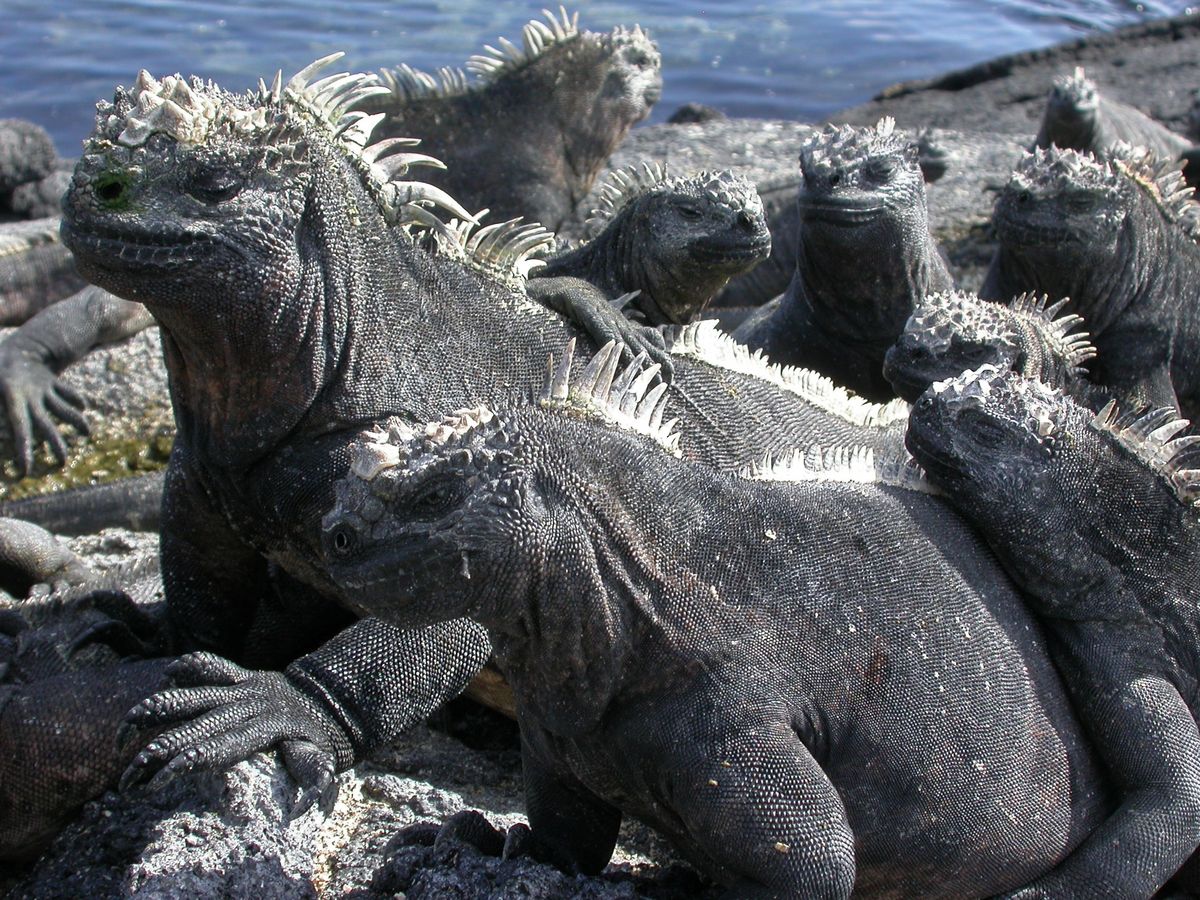Volcanic islands can be seen as "natural laboratories" of evolution as many important evolutionary processes can be observed and reconstructed under simpler conditions compared to mainland settings.
The arrival and subsequent evolution of species on such islands usually represented by a limited number of founder individuals represents an evolutionary process of major interest.
Following arrival, species have to adapt to new environmental conditions often resulting into the evolution of new species and sometimes entire adaptive radiations of species. The Galápagos archipelago is probably the most famous setting of purely oceanic volcanic islands with endemic species founded by individuals from the mainland. Having arrived more than 10 million years ago on the archipelago, a lineage of South-American lizards diversified on the Galápagos archipelago into land (genus Conolophus) and marine iguanas (genus Amblyrhynchus). Like no other lizard worldwide, marine iguanas have fully adapted to the marine environment. By sequencing the genomes of Galápagos iguanas and their sister taxa from the South-American mainland (species of the genera Cachryx and Ctenosaura), we will unravel genomic signatures of the divergence of Galápagos iguanas and the subsequent differentiation of land and marine iguanas, respectively. This will allow us to identify genomic regions (genes) that are in general under selection when species face new environmental conditions on islands and more specific, genes that underlie the unique adaptation of a lizard species to the marine environment.
Cooperation partner:
Prof. Dr. Michael Hofreiter, University of Postdam

